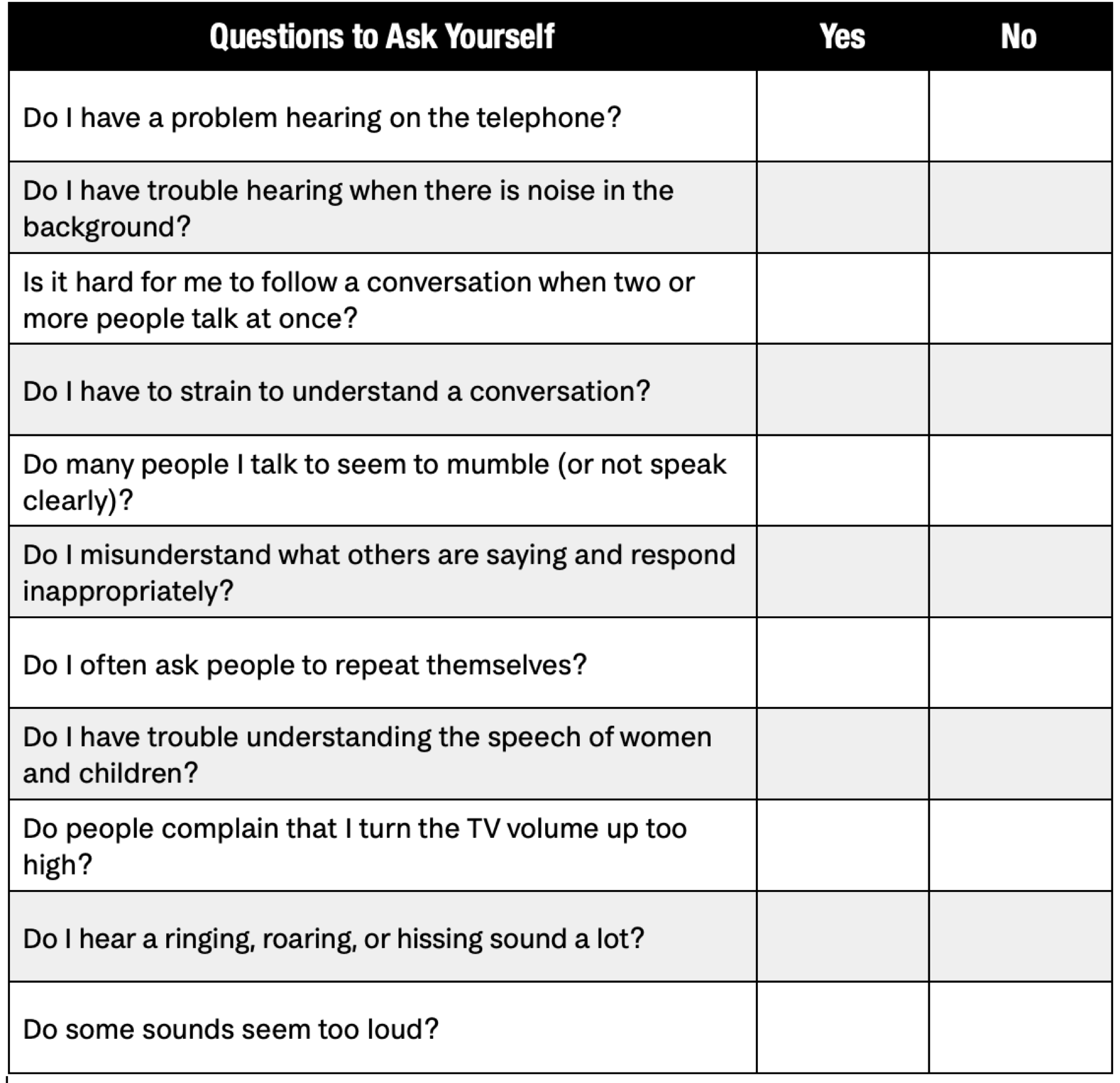The graying of America is about aging baby boomers. US boomers, people born in 1946 through 1964, are a demographic force, 76 million strong. Ten thousand boomers turn 65 every day in America until December 31, 2029.
For some boomers, hearing loss has arrived; for many more, hearing loss may be just around the corner. Hearing loss doubles with every decade of life. In time, two-thirds of adult Americans older than 70 have it and the related health risks.
What about the effects of hearing loss?
Demographics are impressive, but so are the effects of untreated hearing loss, which harms us many ways.
- Relationships struggle.
- Falling is riskier (mild hearing loss triples the risk).
- People become socially isolated, which can lead to depression.
- And there's the big one: dementia. All it takes is a mild hearing loss to double your risk.
Another one that warrants attention is earlier death. In 2015, a Johns Hopkins study found that adults with hearing loss may die earlier than people without hearing loss.
What the Johns Hopkins study found
Researchers examined data from a nationally-representative sample of 1,666 adults 70 years old and older. Of this group, 35% had mild hearing loss, 33% had moderate to severe loss, and 32% had no impairment.
A significant finding: Subjects with moderate to severe hearing loss had a 54% increased risk of death over the next several years than those who had little or no hearing loss.
Keep in mind that there is no research proving hearing loss by itself leads to an earlier death. The researchers noted this. But, as we've discussed, hearing loss connects to many other health problems.
A surprising finding?
Not really. Dementia, depression, falling, diabetes, and osteoporosis are life-altering and can be life-ending without hearing impairment. And don't forget the prevalence of hearing loss: Aging boomers will add many more opportunities for it to interact with cognitive, psychological, physical, and quality-of-life issues.
Boomers are in the crosshairs.
What increases the risk of hearing loss?
Exposure to loud noise for recreation or work (your ears don't discriminate). Protecting your hearing is a game-changer, so wear some when you need it (download the Hearing Damage Scale).
For example, if you work in a noisy industry without hearing protection, intermittent or steady noise of 85 decibels or more can cause hearing loss.
Rule of thumb test for 85 decibels: At 85 dB, you have to raise your voice to talk to a colleague standing three feet away.
As a result, unprotected workers in manufacturing and construction are less safe and experience more stress. Quality of work drops too because loud noise reduces focus and precision.
Let’s add diabetes and osteoporosis to the list. Both substantially increase the risk. For example, hearing loss is twice as common in people with diabetes, with a 30% increased risk for osteoporosis.
There will be about 55 percent more senior citizens who have diabetes than there are today, and about 25 percent more who are obese. —Senior Report, United Health Foundation
One last note: How about hearing loss as an indicator of other diseases? This year, University of London researchers identified hearing loss as an early sign of Parkinson's disease. Perhaps future studies will find hearing loss a valid predictor of approaching health problems. Stay tuned.
Good news for boomers
Hearing loss is treatable. Hearing aids work.
Hearing aids renew our well-being by restoring brain health and removing barriers to easy communication. But you have to act because delaying has consequences.
As discussed in a previous post, hearing loss inflicts permanent damage on your brain. However, by acting early, you can limit the damage, regain your communication savvy, and mitigate the risk of dementia.
Treating hearing loss with hearing aids helps preserve brain function. Hearing aids accomplish this by ensuring sound information reaches your brain for optimal function. —This is Your Brain on Hearing Loss
Read more on hearing loss and brain health.
Calling all boomers! How good is your hearing?
To find out, start with these 11 signs of hearing loss (source: National Institutes of Health).
Schedule a hearing screening if you answer "Yes" to three or more items.

Schedule a hearing screening
Hearing screenings are free, take only 15-minutes, and are always performed by an audiologist at Sertoma Speech & Hearing Centers. An audiologist can accurately determine the amount you've lost (if any) and advise you about treatment if you need it.

